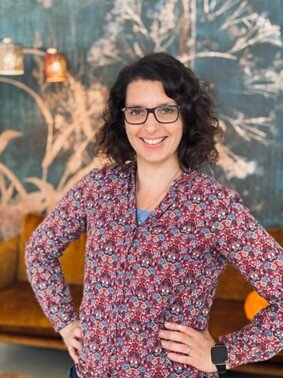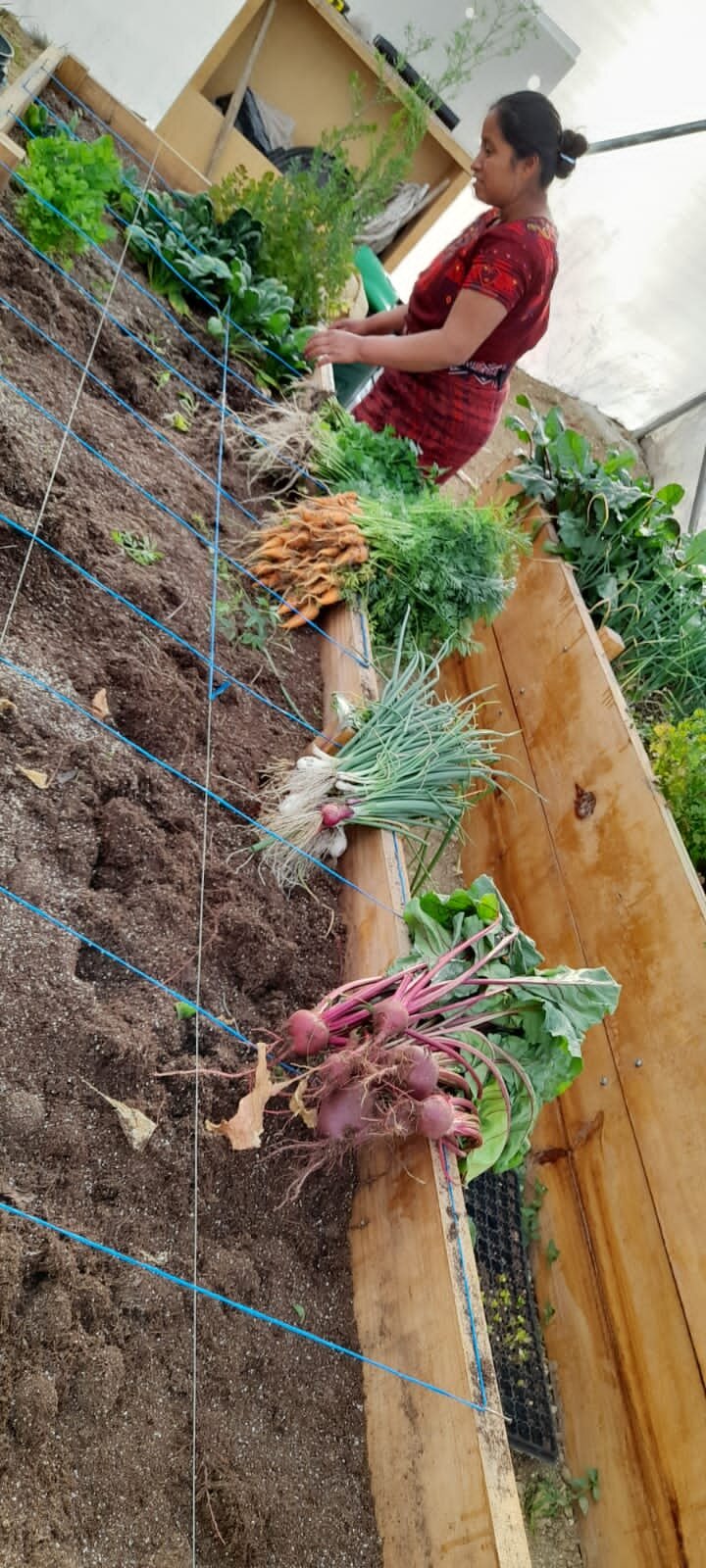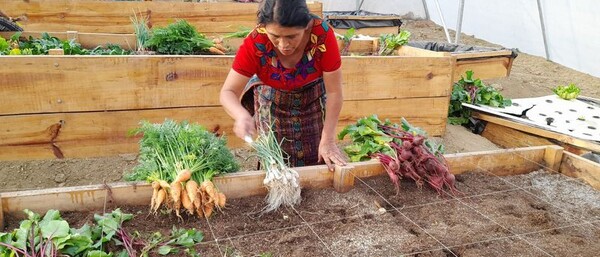
The Tchibo coffee country programm (7)
Have you already tried our new rarity "Santa Bárbara" from Guatemala? You should! This coffee is not only something very special in terms of flavour, but also its history: it tells a great success story in which we at Tchibo have played a small part. And that's what today is all about!
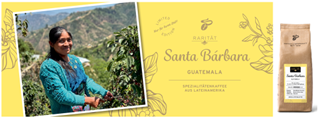
Until a few years ago, today's coffee farmers in Santa Bárbara, Guatemala, only used a small part of their land to grow maize and beans for their own consumption. However, they worked as coffee pickers on larger plantations. As thanks for their hard work, some of them were given coffee plants. As they had little experience in cultivation themselves, Tchibo came into play! We offered training in sustainable cultivation, which also improves the quality of the coffee. What makes us really proud is that after just four years, the farmers from Santa Bárbara no longer leave their community to pick coffee elsewhere, because they had enough to do with harvesting their own coffee!
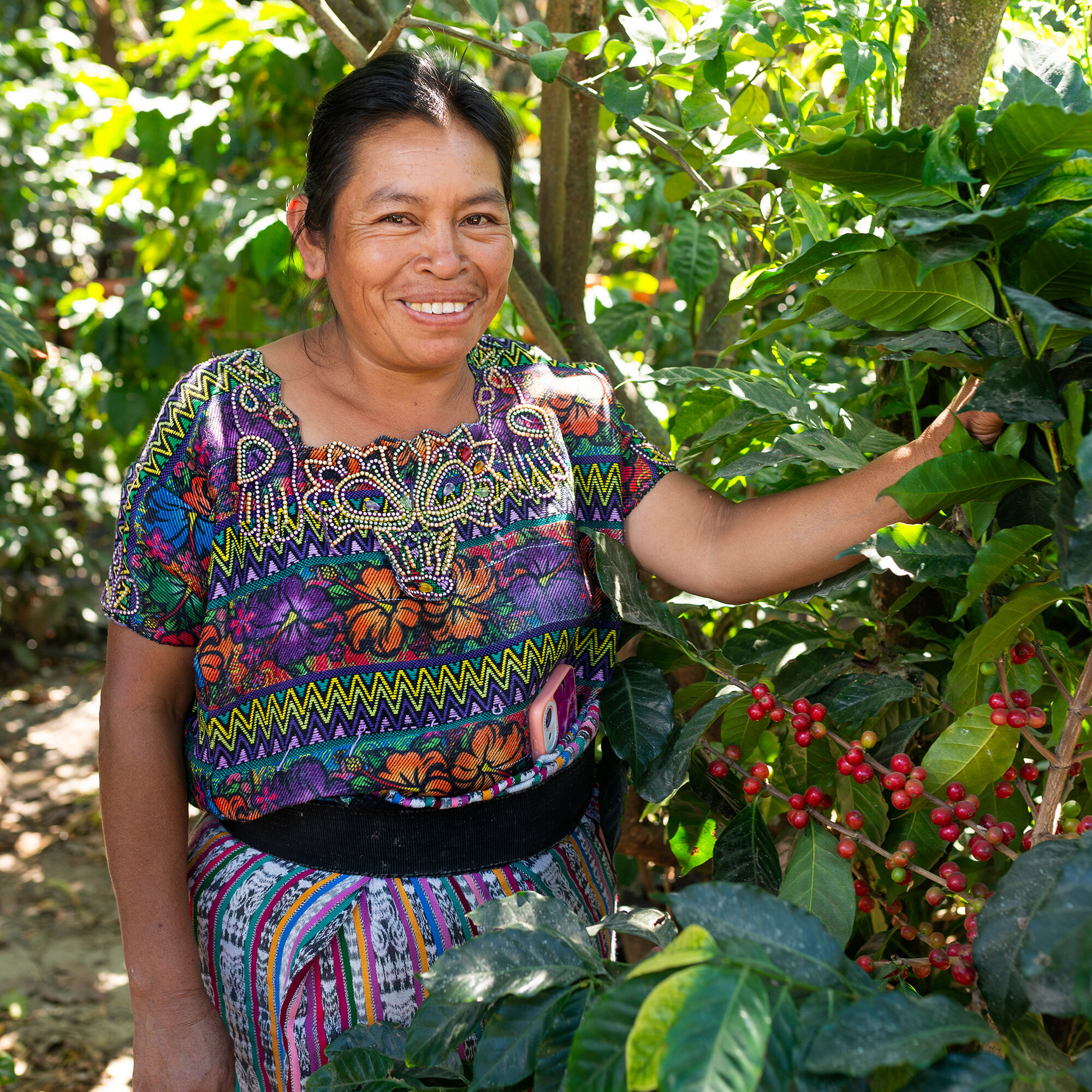
Guatemala – A coffee country with challenges
Guatemala is one of the top 15 coffee-growing countries out of around 90, but the country faces many challenges, particularly poverty, emigration, child labour and climate change. Our goals as part of the coffee programme: adapting to climate change, increasing income and reducing child labour.
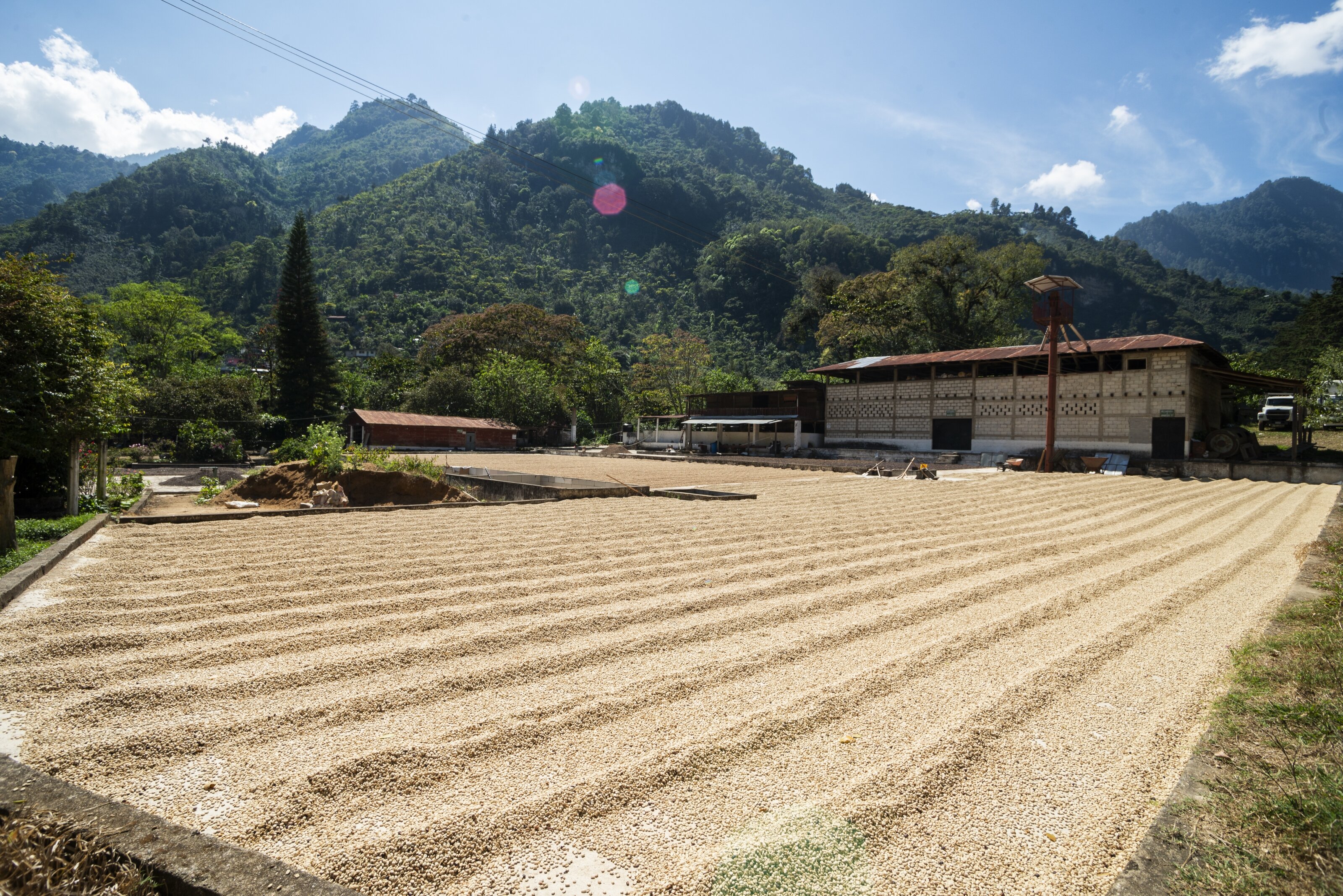
Looking specifically at the Santa Bárbara region: Before the project began, there was not much demand for coffee from Santa Barbara. This has changed since our involvement on the ground: Interest in sourcing coffee from this region has increased. This has also boosted the economy and prices are rising with every harvest. All of this has led to farmers producing more coffee on their plots and being able to sell it at a higher price than before."
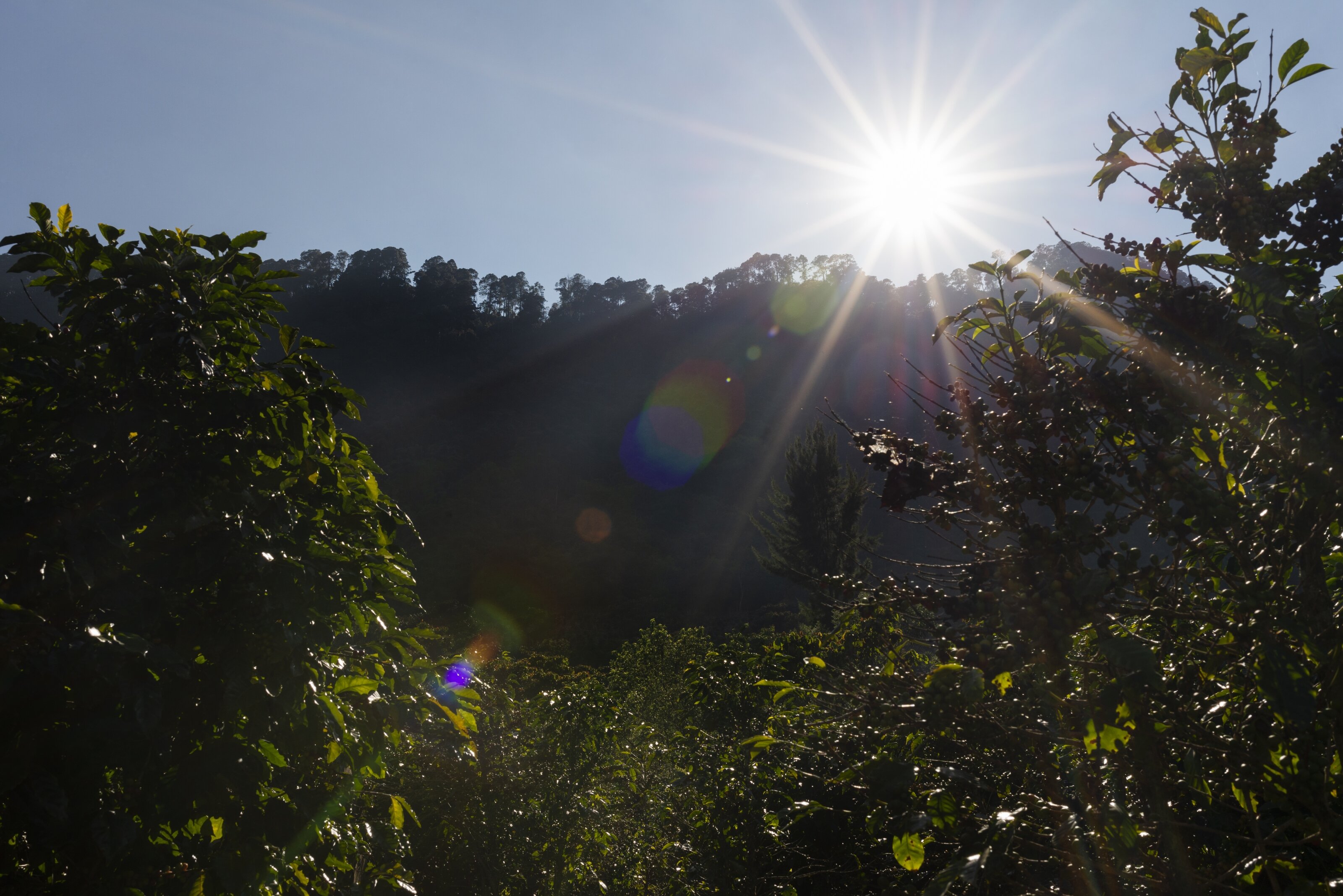
What do we do locally? What are we committed to?
Our efforts in Guatemala
Tchibo is currently supporting 2,600 female coffee farmers in Guatemala, with 3,400 farmers to be involved in the follow-up project. Our projects are primarily about helping people to help themselves; we provide training to improve the productivity and quality of the coffee, among other things, but also to better protect harvests from the consequences of climate change. In addition, young people, especially girls and young women, are supported with various programmes - whether in access to education or in the search for a job or apprenticeship.
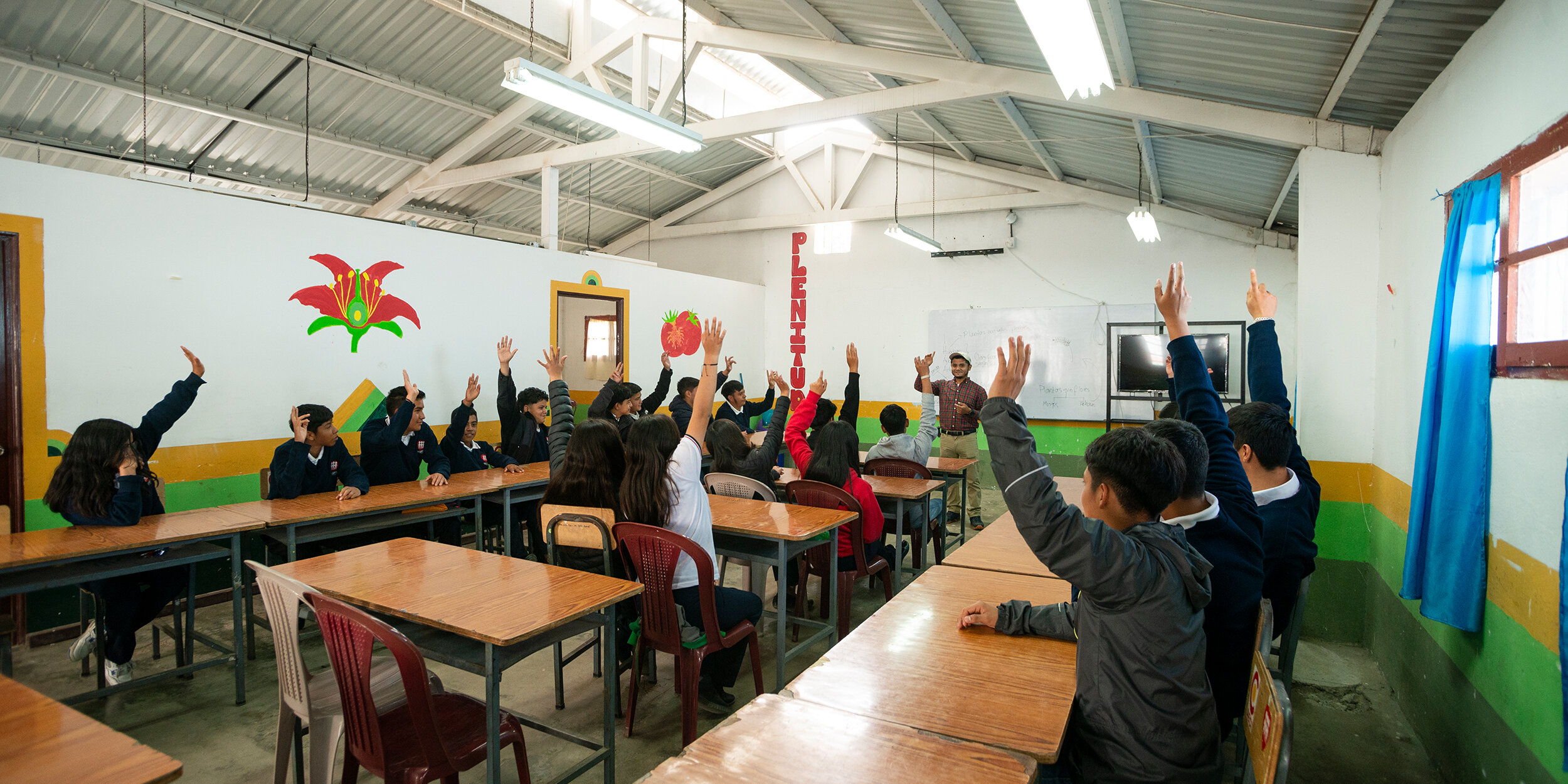
More knowledge leads to more income - for this reason, we offer various agricultural training courses in Guatemala on topics such as knowledge of fertilisers and soil treatment, which contribute to increasing the productivity and quality of coffee and help with adaptation to climate change. Another important approach to increasing the productivity of the farms - both ecologically and economically - is diversification. To this end, we support the cultivation of fruit trees and vegetable crops in the coffee fields. This can help to improve the income and living conditions of the local people.
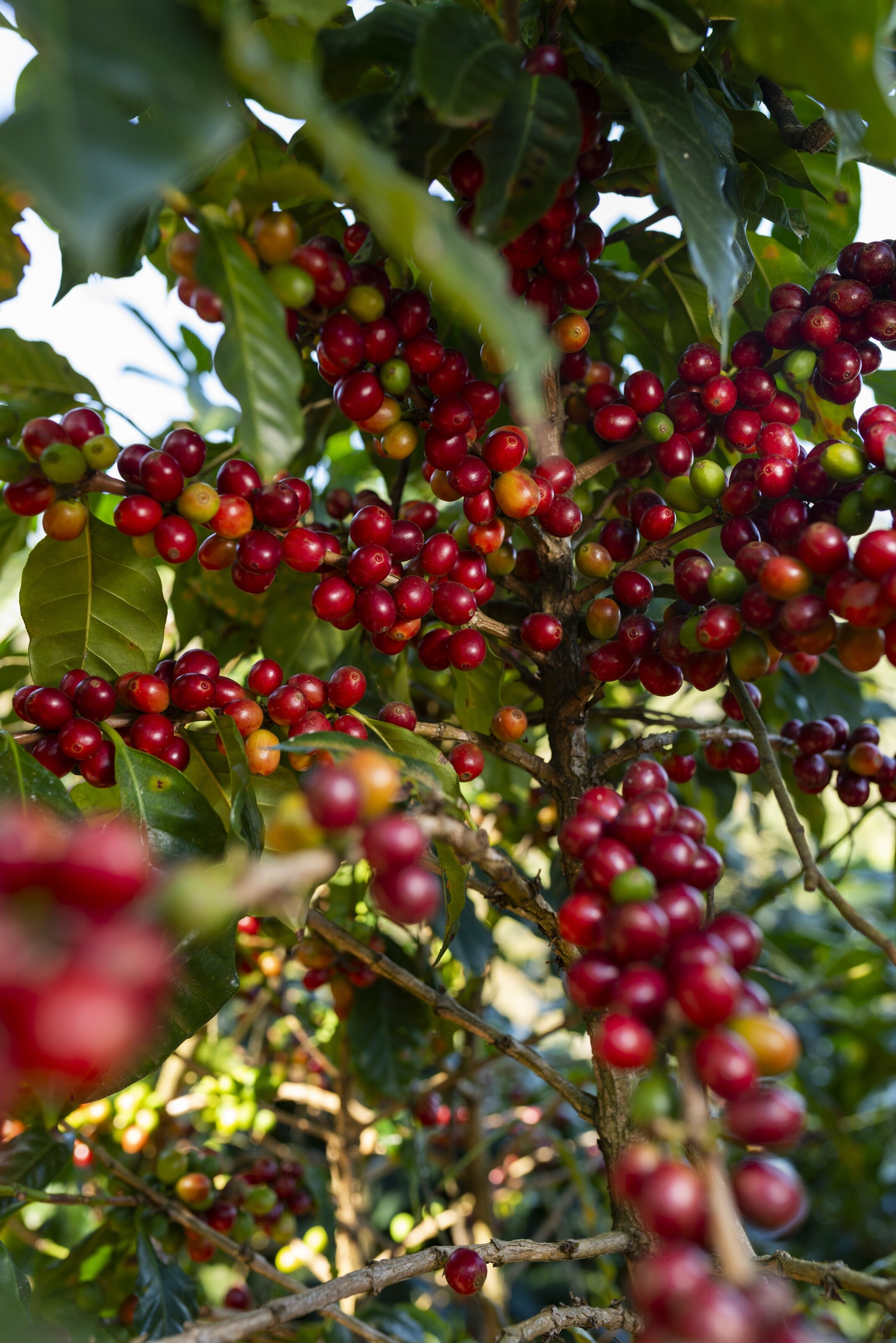
We also support the farming families by introducing alternative agricultural projects. We have implemented an adapted form of hydroponics, a type of plant cultivation that requires significantly less water than conventional agriculture. Cultivation takes place in peat moss and the required nutrients are supplied with the water. This gives the families access to food, e.g. onions, radishes, lettuce, etc.
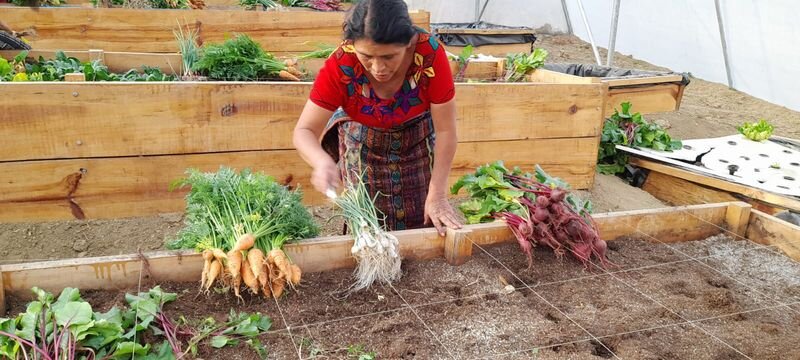
Aida Guerreiro Brito, from the coffee sustainability team and country manager for Guatemala, describes the special nature of the project work:
„I really enjoy working with the team in Guatemala because together with the local people we are creating a change in living conditions. And one that meets the needs of the farmers and their families. Every element of the project was discussed and scrutinised. Through diversification, for example, we are not only supporting coffee cultivation per se, but also the environment and the people themselves. The people grow fruit trees to feed themselves, which provide the important shade for the coffee plants to thrive properly. The soil and wildlife also benefit from the different plants.“
